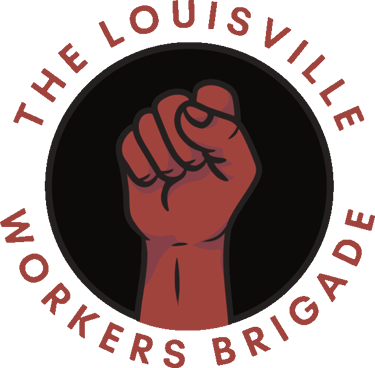We Ask to Move Forward
Thesis on the Current State of the Proletariat
International Workers Brigade
10/18/20255 min read


Today, the vast majority of workers organizations, even ones that present themself as socialist or even communist, are stuck in a dilemma between what constitutes real revolutionary action and theory.
The confusion of what the party should do stems from the apparent mystery of what is revolutionary action and theory. But how does the proletarian class party solve this mystery, the tactical dilemma between immediate action and thought, and what constitutes its specific function as the indispensable organ of the working class in the revolutionary process?
We find our answers first in understanding what the class and the class party is
The Class and Party
Class is not a statistical sum of individuals with similar experiences. It is a social organism that truly exists only when they begin to act in a centralized, unified manner toward a conclusive goal.
The class party is both a school of thought AND a method of action.
The party is the custodian of the revolutionary doctrine. It does not alter this doctrine based on temporary individual circumstances, but grounds itself in a scientific study of the proletariat class’s entire historical experience. Its first task is to provide a coherent, historical analysis of all events, especially during times of capitalist crises where war, genocide, and extreme exploitation are present, exposing them as inevitable conflicts between bourgeoisie and proletariat. The party acts as the memory of the class, preserving the lessons of past struggles (e.g., the Paris Commune, the 1917 Revolution).
As the instrument of revolution, the party is also the centralized, disciplined organization that prepares for the decisive moment. It does not chase after every spontaneous outburst but works to generalize and unify isolated struggles into a coherent political movement aimed at the forcible overthrow of todays society. It’s tactic is to ensure that every action, where possible, serves to develop the class’s understanding of the need for revolution and the insufficiency of bourgeois politics, for the achievement of political independence from the bourgeoisie.
What Do We Do?
Therefore the party’s primary action is political and preparatory. Its work is expressed in three main areas
Critique and Exposure: Relentlessly criticizing all other political tendencies (trade-unionism, social democracy, anarchism) as inadequate and/or actively hostile to the Proletariat’s task of revolution.
Propaganda and Agitation: Systematically educating the proletarian vanguard on the full historical trajectory of the class struggle, using its press and organizations as a school of revolutionary thought.
Intervention: Bridging the immediate and isolated needs of workers to the revolutionary and international class struggle. Not by directing strikes for economic gains, but by intervening in class movements to inject the political dimension—i.e., connecting a factory struggle to the need for workers political power and the destruction of the bourgeois state.
Therefore, the most revolutionary tactic is the patient, consistent, and intransigent work of building the party itself as the future instrument of class rule. The party’s action is, therefore, the precondition for all other revolutionary class action.
From the perspective of revolutionary Marxism, the Proletariat’s path to power is systematically obscured by a series of deviations that, despite their apparent differences, all serve to perpetuate bourgeois rule.
Opponents to the Proletariat Class
Following our task of ruthless criticism, we must address the most potent elements of our class enemies:
Activism - action without theory - mistakes movement alone for revolution. It exaggerates the role of action in the isolated and individual proletarian experiences, while neglecting the paramount importance of theoretical preparation and historical study, throwing away the development of a coherent class consciousness, dissipating the energy of the advanced workers into a series of disconnected skirmishes and sabotaging the necessary concentration of forces required for the challenging task of proletarian revolution. It is the very opposite of the party’s role as the school of thought, standing behind the working class, ensuring the class acts only in reaction to the capitalist, rather than directing the course of history towards revolution; in other words, the activists render the proletariat class reactionary.
Antifa particularly poses a threat to the class movement, isolating fascism as the primary enemy, in the name of “restoring democracy”, ignoring that bourgeois democracy and imperialism have caused comparable, if not greater, global suffering for over a century. Shall we ignore the plunder of Africa and South America?
We ask our activist critics:
Why should we, the class party, concern ourselves with the individual and isolated collection of activities over the concern of the class itself?
Similarly, economicism constitutes a more insidious betrayal by seeking to reconcile the proletariat with its own exploitation. Economicism, is theory and/or action that puts isolated and individual struggles over wages and working conditions as the primary battlefront, abandoning the political struggle in the process. Economists mistakenly believe that unions and councils alone can develop class consciousness and lead the revolution, a most profoundly in syndicalist and union tendencies.
We have said before in our response to the SAM petition campaign to unionize:
“Economicism is never advocated for - so I cannot blame any individual [critics] - but it is a symptom of something more contagious, a sort of elitism which denies the working class a chance at even acknowledging the political struggle, only regulating them for economic gains for gains-sake.”
- LWB, The 'Petition' Campaign
The economic front is weaponless without the political front, which, the class party is the only organ which the working class can attain class consciousness.
We ask the economist critics: Is the final goal of the working class simply to be a better-paid slave, or is it to cease being a slave altogether? After what has been described does your economism not aim for the former while systematically blocking the path to the latter?
Adventurism, impatient with the patient work of party building and theoretical clarification, confuses revolutionary willingness to struggle and sacrifice with a desperate, premature attempt to incite insurrection. In other words, it seeks to replace the mature, conscious movement of the entire class, ignoring the indispensable role of the party as the collective memory and general staff of the proletariat with the heroic action of a small minority. Adventurism leads only to the isolation and physical destruction of the most militant elements of the class, providing the bourgeois state with a pretext for repression and demoralizing the broader working class. In its disdain for the necessary stages of political preparation, it reveals itself not as a revolutionary tactic, but as a petty-bourgeois impatience that is objectively counter-revolutionary in its consequences.
We ask our adventurist critics: Is the patient and breathless task of meticulously planning the revolutionary struggle and guiding the proletariat to the final victory less “real” then, as one of our critics suggested, slashing police tires?
Reformism and electoralism betray the class movement by redirecting its revolutionary energy into the enemy’s own institutions. This tendency, whether manifested through Social-Democratic parties like D.S.A. or left-wing populists like the P.S.L., operates on the fatal illusion that the state is a neutral body, rather than an organ designed to enforce class rule. Participating in bourgeois elections only legitimizes their system, fostering the false hope that workers’ interests can be reconciled with capital through political compromise. This demobilizes the proletariat as an independent force, replacing the necessary task of building revolutionary power for the futile pursuit of parliamentary reform. Ultimately, it is a strategic dead-end that disarms the working class and reinforces the dictatorship of capital.
We ask our reformist critics: after several hundred years of historical proof that the capitalist state will only allow proletarian organizations power so long as it doesn’t threaten capital; what has changed in the past five years that changes this? What about ten years? Twenty?
